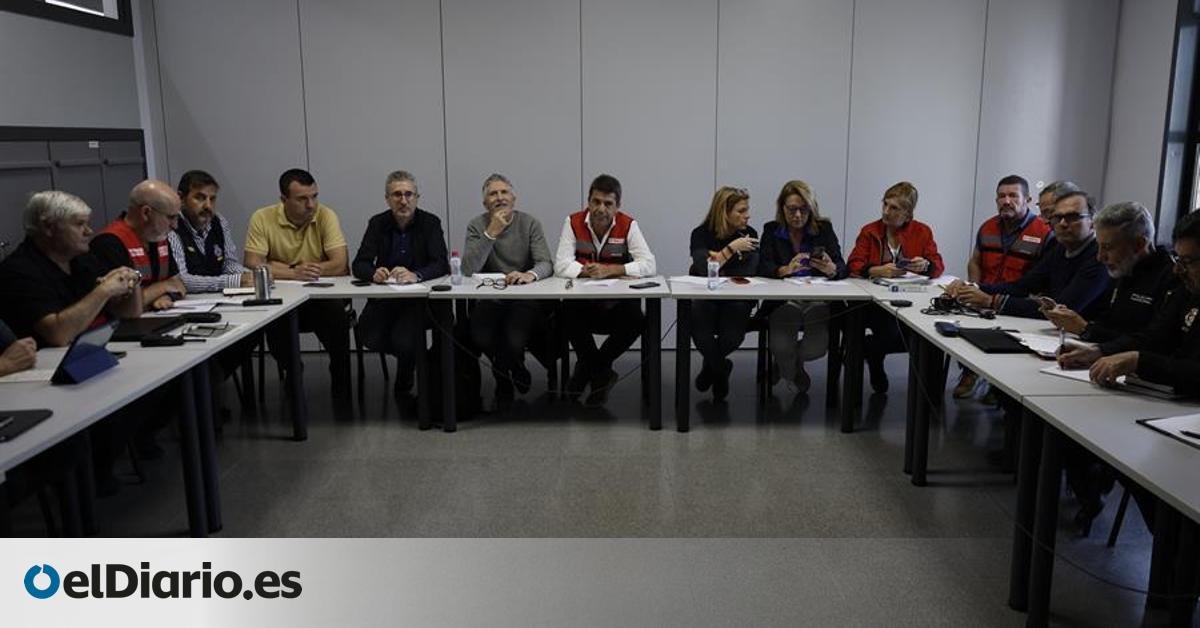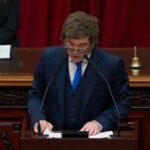
Emergency policy was never a priority for the president of the Generalitat Valenciana, Carlos Mazón. The evidence has been the DANA catastrophe in the province of Valencia. But precedents show that the seed of the management disaster was planted as soon as the legislature started. And all, despite the fact that less than three years ago a pandemic hit the world and in 2019 another wild storm devastated the Vega Baja region. The virulence with which the effects of climate change are affecting the Mediterranean coast was not enough evidence to be alert either.
In the first Government that he launched after winning the elections, Mazón handed over the management of the Emergencies to Vox, a climate denialist party with no previous government experience. The greatest milestone of the former far-right councilor at the head of Justice and Interior was dismantling the Valencian Emergency Unit (UVE), created by the previous PSPV-PSOE and Compromís government to coordinate catastrophes. At four months. Mazón himself worked hard to “sell” this political success because it ended with “a beach bar.”
After the break with Vox, the powers in Emergencies were assumed by the Minister of Justice and Interior, Salomé Pradas. As directly responsible for the area, acting as regional secretary of Security and Emergencies, Pradas appointed Emilio Argüeso, a former Ciudadanos deputy who joined the PP to finish blowing up the orange party in the Valencian Community in the last legislature. Argüeso is on leave as a civil guard and has experience as a local police officer, but not in management nor is he trusted by the president, as has been proven in this crisis. The position that Argüeso now occupies was held in the previous legislature by José María Ángel and he reported directly to the president of the Generalitat, Ximo Puig. Mazón has preferred that his Presidency department have other powers such as the general direction of the Music Industry, which he assumed as his own this summer.
Thus, several sources consulted by elDiario.es who access the meetings of the Integrated Operational Coordination Center (Cecopi), where there are around twenty officials from institutions and State Security Forces and Bodies, explain that “Emergencies of the Generalitat is a lack of control.” “The problem is that there is no leadership nor is there a single command,” they point out. And as a button shows. The president of the Generalitat is relying on José Miguel Basset, provincial chief of Firefighters of the Valencia Provincial Council, in his public appearances. Neither his regional secretary, who is doing work on the ground and does not attend the Cecopi in person, nor the general director of Emergencies, Alberto Javier Martín. In the case of the deputy director general of Emergencies, the official Jorge Suárez, he has intervened in some of the press conferences to defend that the entire action was correct and “based on protocols.” For his part, the regional secretary is on the front line in one of the advanced command posts, specifically in Paiporta. But there are three other advanced command posts in Requena, Chiva and a municipality in La Ribera.
Other sources confirm the lack of coordination and reflexes in that first Cecopi meeting. “There is a total lack of experience in Mazón’s team and the president doesn’t trust it either,” they emphasize. These same sources, also familiar with the first meeting of the development of the first Cecopi, called on Tuesday afternoon, assure that, in addition to the fact that the initial call was made “late” by the Minister of Justice and Interior, Salomé Pradas, still It was further delayed with the arrival of President Carlos Mazón. The president had to be updated on everything that was happening.
The mayors have also harshly criticized the management of the catastrophe, the lack of coordination and the lack of information and help on the part of the Generalitat. The first meeting between mayors and crisis managers was called on the 31st by the Valencia Provincial Council. The president of the Generalitat and the Government joined in.
The lack of coordination has been evident in the lack of management of one’s own resources. While the Mazón Government was already requesting help from the Military Emergency Unit and later from the Army, it had its hundreds of forest firefighters with their arms crossed.
According to the unions, the six helicopters of the Forest Fire Service of the Generalitat remained at their respective bases without intervening during the first two days of the emergency, while the regional Executive requested resources from the rest of Spain. For their part, of the 26 units of these firefighters, only two were mobilized on Tuesday. The same thing happened with other institutions that offered and that also criticized online for not being mobilized.
Pedro Sánchez at Cecopi
At the Cecopi meeting last Thursday morning attended by the President of the Government, Pedro Sánchez, a very striking situation occurred that shows the need for the single command to send clear and forceful messages. The Castellón firefighters requested at the meeting that a message be sent by SMS to stop the mobility of the population due to the large amount of water that was raining. From Valencia, other firefighters defended caution.
According to sources present at the meeting, Sánchez attended the debate in silence until he intervened: “But let’s see, can’t we notify people?” As soon as Cecopi ended, all the cell phones in Castellón affected by DANA received the alert message.
Source: www.eldiario.es

